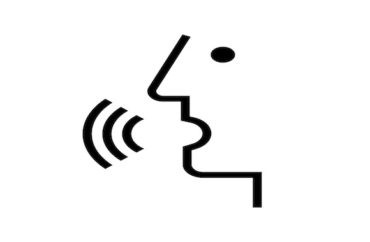
Making use of the modern power of social media, middle and high school students across the country are speaking out against having to do in-class presentations in front of their peers.
The Atlantic reported this week that many students claim such a requirement is “discriminatory to those with anxiety,” and are demanding alternatives be made available.
Students who support abolishing in-class presentations argue that forcing students with anxiety to present in front of their peers is not only unfair because they are bound to underperform and receive a lower grade, but it can also cause long-term stress and harm.
“Nobody should be forced to do something that makes them uncomfortable,” says Ula, a 14-year-old in eighth grade, who, like all students quoted, asked to be referred to only by her first name. “Even though speaking in front of class is supposed to build your confidence and it’s part of your schoolwork, I think if a student is really unsettled and anxious because of it you should probably make it something less stressful. School isn’t something a student should fear.”
“It feels like presentations are often more graded on delivery when some people can’t help not being able to deliver it well, even if the content is the best presentation ever,” says Bennett, a 15-year-old in Massachusetts who strongly agrees with the idea that teachers should offer alternative options for students.
To be sure, the sentiment is mixed as a whole. Many students and teachers take the opposite view and believe public speaking in class gets students “out of their comfort zone,” and helps prepare them for real word situations.
These days, students with severe anxiety issues probably have an IEP (Individualized Education Program) or a 504 accommodation (section 504 of the Rehabilitation Act of 1973 addresses the rights of those with disabilities) which require teachers to offer alternatives to certain lessons where applicable.
In addition, if students like Bennett “feel” that presentations are graded more on the delivery — especially when the delivery is immaterial to the lesson/grade — they should take it up with the teacher, who in turn should re-evaluate how he/she assesses students. A teacher whose objective is getting back the knowledge students learned, but subsequently grades on how that information is conveyed, isn’t practicing good teaching.
Public speaking in certain subject areas, of course, is quite relevant. English and social studies classes may hold debates, and in foreign language courses (my specialty) speaking is mandatory.
Not noted in the Atlantic article is how the very technology teenagers hold dear can be used in these situations. In my last few years of teaching (during which the quantity of IEP and 504 students increased markedly), a few students here and there asked if they could record themselves using their smartphones instead of standing in front of the class. My response: “Sure!”
Of course, this solution took a bit more finagling when it came to the “big” Spanish project (a fashion show), and would for a debate in, say, history class as well. But something can always be worked out … and would have to if a kid has that IEP/504.
Students who are wary about such performances shouldn’t jump the gun on asking/demanding an accommodation. Some of my students who swallowed hard and “weathered the storm,” so to speak, ended up surprised at how easy it was … and how supportive their peers were. Five years ago I had a student with an IEP for, among other things, a speech impediment. He himself insisted on participating in the Spanish fashion show project with his group, saying his lines — in Spanish, mind you — in front of the whole class.
The result? The entire gave him a standing ovation.
MORE: (More) advice from one who’s never been in a classroom
IMAGE: Sviatlana Sheina/Shutterstock.com
Like The College Fix on Facebook / Follow us on Twitter







Please join the conversation about our stories on Facebook, Twitter, Instagram, Reddit, MeWe, Rumble, Gab, Minds and Gettr.